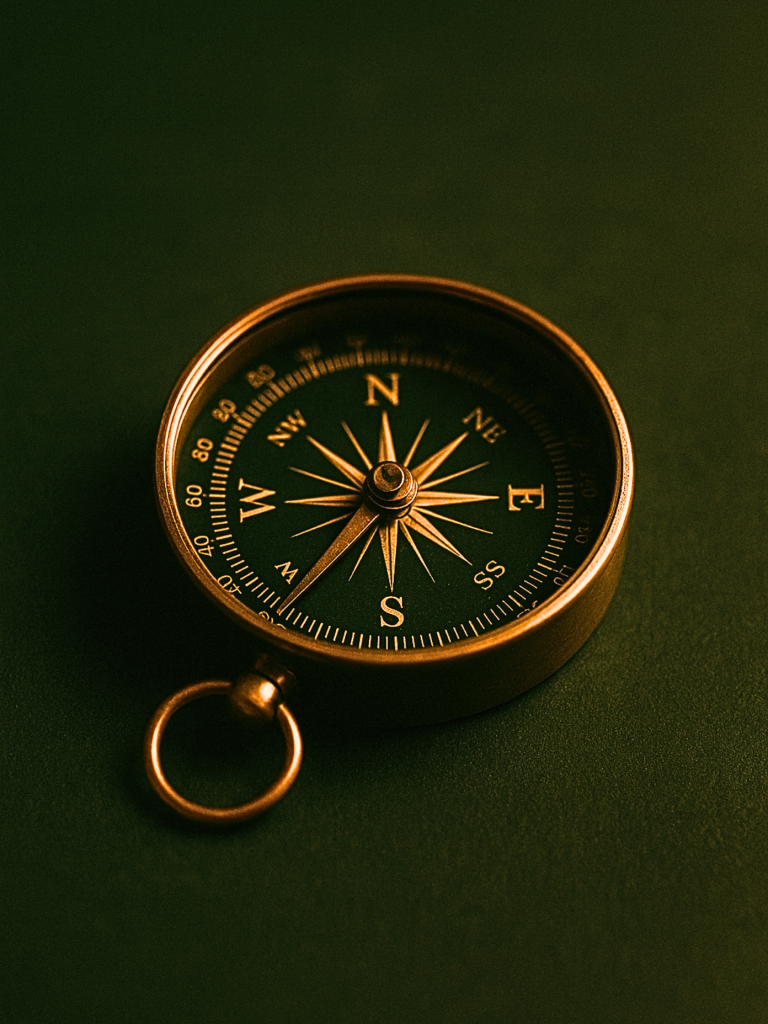 Someone explores an opportunity.
Someone explores an opportunity.
Something clicks. The fit makes sense. The logic is sound. There’s a way forward that feels right
And then the choice appears.
One direction: trust that instinct and move.
The other: compare a few options, make sure nothing gets missed.
Most people choose the second. It feels careful. Smart. Safe.
And for some people, it is.
But I’ve watched enough people go that direction to know where it often leads. Not to better decisions. To paralysis.
Someone I know spent eight months going that route.
Started with a conversation that made complete sense. Then decided to look at a few other options. Just to compare. Just to be thorough.
Eight months later, he couldn’t tell the options apart anymore. Had watched the same videos so many times they stopped meaning anything. Read the same testimonials until they all sounded identical.
When I asked what changed, he said nothing changed. That was the problem.
All the options still looked good. He just couldn’t figure out which one was right anymore.
Meanwhile, someone else who’d had a similar conversation around the same time made the other choice. Trusted their instinct. Started building.
By month eight, there was a gap between them that couldn’t be closed. One was learning things you can’t see from the outside. The other was still trying to figure out which offer made the most sense.
What Happens When You Compare
Nobody expects it to go this way.
It starts reasonable. “Let me look at a couple other options. Just to make sure I’m making the right call.”
Fair enough.
Then the inbox starts filling up. Someone else reaches out about something similar. Different angle. Worth a conversation.
Then another platform shows up in retargeting ads. LinkedIn messages. Facebook groups. Webinars. Discovery calls.
What was supposed to be “a couple other options” becomes five. Then seven. Then more.
And something strange happens. The differences that seemed obvious at first start to blur. Testimonials stop registering. Case studies start sounding the same.
It’s not that the options are identical. They’re not.
But when someone looks at too many similar things, they lose the ability to see them clearly. It’s like staring at a word until it stops looking like a word. The more it gets examined, the less sense it makes.
I’ve seen this pattern more times than I can count. Smart people. Successful. Make big decisions regularly without hesitation.
But on this type of decision? Stuck.
Not because the options are bad. Because there are too many of them.
Too many options don’t create better judgment. They create doubt.
What Gets Lost
Here’s what gets me about the whole thing:
The person who spent eight months comparing didn’t end up with a better choice than the person who decided quickly.
They ended up more confused. Less certain. More second-guessing.
The extra time didn’t create confidence. It created paralysis.
Because there’s a point where more information stops helping. Past that point, it just adds weight. Every new conversation is another thing to process. Every testimonial is another variable to consider.
The decision doesn’t get easier. It gets heavier.
And while that weight builds, someone else is already six months in. Building momentum. Learning what the materials couldn’t explain. Creating results that don’t exist from the outside looking in.
That’s the cost nobody sees coming. Not the risk of choosing wrong. The price of not choosing at all.
Why Comparison Feels Safer
Most people who choose to compare have a reason.
Something happened before. An investment that didn’t work out. A program that promised results and didn’t deliver. Maybe something that still gets mentioned at home when opportunities like this come up.
Those experiences matter. They shape how decisions get made. And being extra careful makes sense. Nobody wants to repeat something that went sideways.
But here’s what I’ve noticed: certainty doesn’t come from comparison. It comes from experience.
The person who spent eight months was looking for a guarantee. A way to know for sure before committing.
And that guarantee doesn’t exist. No amount of comparison can predict how something will actually play out. Outcomes can’t be determined from offer materials and testimonials.
So the research continues. Because as long as more information is being gathered, a decision doesn’t have to be made. And as long as no decision gets made, being wrong isn’t possible yet.
But being right isn’t either.
The Real Question
I think what most people are actually trying to answer isn’t “Which option is best?”
It’s “Can I handle this if it doesn’t go perfectly?”
That’s a hard question. I get it.
What if this becomes another thing that didn’t work out? What if resources get committed and six months from now nothing has changed? What if this turns into another story that gets brought up?
Those concerns are real. But they won’t disappear with more comparison. They disappear with confidence in the ability to adjust.
The decision doesn’t require perfect certainty about outcomes. It requires trust in the ability to recognize what’s working and course-correct if needed.
Can someone tell when something’s working? Can they adapt if things don’t go as planned? Can they make changes instead of staying frozen?
If yes, then this probably isn’t as high-stakes as it feels.
It’s not about choosing perfectly on the first try. It’s about moving forward and adapting along the way.
What Moving Forward Looks Like
The people I’ve seen who move forward aren’t reckless. They’re not skipping due diligence or ignoring red flags.
They’re just willing to trust their judgment when something clicks.
They have a conversation. It makes sense. The fit is obvious. The logic is sound.
And instead of thinking “let me compare this to five other options,” they think “this feels right, I’m going to move.”
Not because they know for certain it’ll work perfectly. But because they trust their ability to recognize what’s working and adjust if needed.
They set a timeframe. Give it ninety days to see what happens. Not to predict everything in advance. Just to start and see what the first quarter reveals.
And if it’s not working at ninety days? They can make changes. One decision doesn’t lock them in forever.
But here’s what they avoid: the fog that comes from too many options. The paralysis that comes from endless comparison. The time cost that comes from researching instead of building.
They learn by doing, not predicting.
The Choice In Front of You
If someone just had a conversation that made sense, they’re facing that choice right now.
One direction: trust that instinct. Move forward. See what happens.
The other: compare a few more options. Make sure nothing gets missed.
Both feel reasonable. But they lead to very different places.
One leads to momentum. The other often leads to paralysis.
One leads to learning through experience. The other leads to predicting through research.
One might involve some course-correction along the way. The other involves trying to avoid course-correction by predicting perfectly upfront.
And here’s the thing: course-correcting is easier than staying stuck.
Adjusting after starting is easy. Getting unstuck after months of comparison is hard.
If You’ve Been Comparing Too Long
For anyone who’s been comparing longer than they meant to – it happens. Most people don’t plan to get stuck. They just get there gradually.
The way out usually isn’t finding more options. It’s going back to earlier judgment.
Before the inbox got overwhelming. Before ten conversations happened. Before too many options created confusion.
That early instinct was probably right. That was judgment working properly.
What came after wasn’t better judgment. It was interference.
The person who spent eight months? When I asked which platform he liked best back in month two, he knew immediately.
By month eight, he couldn’t remember why. Because he’d confused himself with options that didn’t need to exist.
The answer was there from the start. He just buried it under research.
Going back to that – the conversation that clicked before things got complicated – that’s usually where the answer lives. Not because it’s perfect. Because it was clear before comparison got in the way.
What Movement Requires
Movement doesn’t come from finding the perfect option.
It comes from trusting judgment when something clicks. From valuing learning over prediction. From recognizing that the distance between where someone is and where they want to be grows every week they stay frozen.
The person who moved six months ago while someone else kept comparing didn’t have secret information. They just decided that starting and adjusting made more sense than researching indefinitely.
And they were right.
Because the certainty people look for doesn’t exist at the decision point. It only shows up after starting. After seeing what actually happens instead of trying to predict what might.
For anyone facing that choice right now – after a conversation that made sense:
The careful choice isn’t always the one that looks most thorough. Sometimes it’s the one that trusts judgment and moves.
Not recklessly. Not ignoring gut feelings or red flags.
But trusting that if something clicked, that means something. And that course-correcting after starting is easier than getting unstuck after months of comparison.
Give it time. See what it shows. Trust the ability to adjust along the way.
The gap between where someone is and where they want to be doesn’t close through comparison.
It closes through movement.
👉 If this spoke to you, share it. Someone you know may be waiting for the reminder to stop waiting.


